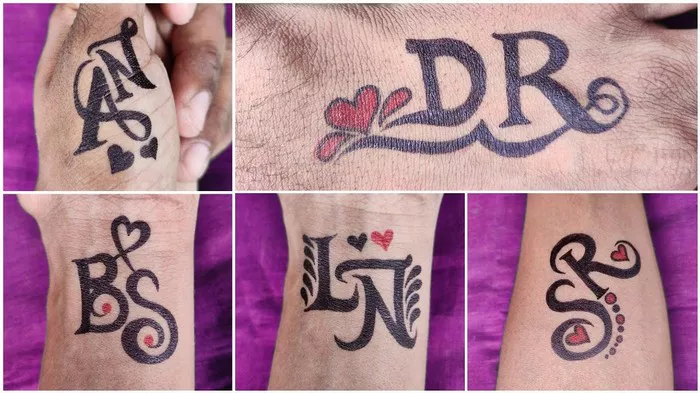Tattoos have become an increasingly popular form of self-expression, with millions of people around the world adorning their bodies with intricate designs and meaningful symbols. While tattoos can be a beautiful and meaningful addition to one’s appearance, there is often concern about how they will look over time, especially small tattoos. In this article, we delve into the factors that can influence the appearance of small tattoos as they age, providing insights into why they may not always stand the test of time.
Understanding the Aging Process of Tattoos
Before diving into the specifics of small tattoos, it’s essential to understand how tattoos age in general. When you get a tattoo, the ink is deposited into the middle layer of your skin, called the dermis. Over time, several factors can affect the appearance of your tattoo, including:
1. Sun Exposure: Sunlight is one of the biggest culprits when it comes to tattoo fading. UV rays can break down the pigments in your tattoo, causing them to fade and blur over time.
2. Skin Elasticity: As we age, our skin loses elasticity, which can cause tattoos to stretch and distort. This is especially true in areas prone to weight gain or muscle growth, such as the abdomen or biceps.
3. Ink Quality: The quality of the ink used can also impact how well a tattoo holds up over time. Lower-quality inks may fade more quickly or change color, while higher-quality inks are more resistant to fading.
4. Placement: The placement of a tattoo can also affect its longevity. Tattoos on areas of the body that experience a lot of friction or rubbing, such as the hands or feet, may fade more quickly than those in less exposed areas.
Now that we have a general understanding of how tattoos age, let’s explore how these factors specifically impact small tattoos.
The Unique Challenges of Small Tattoos
Small tattoos present their own set of challenges when it comes to long-term appearance. While they may seem like a low-maintenance option compared to larger pieces, small tattoos are not immune to the effects of time. Here are some reasons why small tattoos may not age as gracefully as larger ones:
1. Limited Detail: Small tattoos often lack the intricate detail of larger pieces, which can make them more susceptible to blurring and fading over time. Fine lines and tiny details may become less defined as the tattoo ages, resulting in a less polished appearance.
2. Less Room for Touch-Ups: With limited space to work with, small tattoos may be more challenging to touch up or revise as they age. Artists may struggle to maintain the integrity of the original design, leading to a less precise final result.
3. Placement Considerations: Small tattoos are frequently placed in highly visible areas, such as the wrist, ankle, or neck. While these locations allow for easy showing off of your ink, they also expose the tattoo to more wear and tear, increasing the likelihood of fading and distortion over time.
4. Ink Migration: Over time, ink particles can migrate within the skin, causing small tattoos to spread and lose their crisp edges. This phenomenon, known as ink migration, is more noticeable in tattoos with less surface area, making small tattoos particularly vulnerable.
5. Limited Color Palette: Small tattoos often rely on a limited color palette to achieve their desired effect. While this can create a striking visual impact initially, it may also contribute to faster fading and color distortion over time.
Despite these challenges, small tattoos can still maintain their charm and appeal with proper care and attention. Here are some tips for ensuring that your small tattoo ages gracefully:
1. Protect Your Skin: Apply sunscreen to your tattooed area whenever it’s exposed to the sun, as UV rays can accelerate fading and discoloration. Consider wearing clothing or accessories that provide additional protection, especially during prolonged sun exposure.
2. Stay Hydrated: Keeping your skin well-hydrated can help preserve the vibrancy of your tattoo and prevent premature fading. Drink plenty of water and moisturize your skin regularly with a gentle, fragrance-free lotion.
3. Choose a Reputable Artist: When getting a small tattoo, it’s crucial to choose an experienced and reputable artist who specializes in small-scale work. A skilled artist will be able to execute your design with precision and attention to detail, increasing the likelihood of a long-lasting result.
4. Follow Aftercare Instructions: Proper aftercare is essential for ensuring the longevity of your tattoo. Follow your artist’s instructions carefully, including keeping the tattoo clean and moisturized during the healing process. Avoid picking at scabs or exposing the tattoo to excessive moisture until it has fully healed.
5. Consider Touch-Ups: As your tattoo ages, consider scheduling periodic touch-up sessions to refresh the colors and lines. A skilled artist can make minor adjustments to keep your tattoo looking sharp and vibrant for years to come.
In conclusion, small tattoos can be a beautiful and meaningful form of self-expression, but they require careful consideration and maintenance to age gracefully. By understanding the unique challenges that small tattoos face and taking proactive steps to care for your ink, you can ensure that your tiny masterpiece stands the test of time. Remember to choose a reputable artist, protect your skin from sun damage, and follow proper aftercare guidelines to enjoy your small tattoo for years to come.

